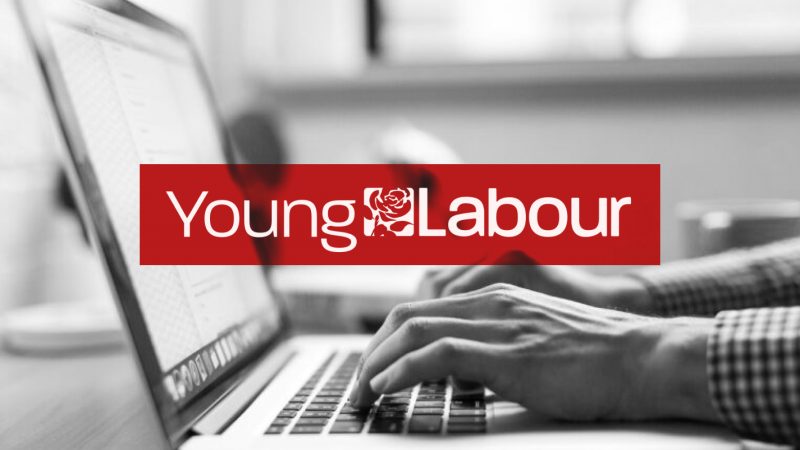
With conferences cancelled and local parties unable to meet (at least in the physical sense), we can only try our best as a collective to support each other and continue our activism. While Millennials and Generation Z are the online generations, the shift from in-person to online communication from all generations can be seen by some as a burden. But for young people in the Labour Party, it is an opportunity.
In the Labour Party, there is no good reason not to continue youth democracy, activism and engagement. A key aspect of this is Young Labour elections. These were already postponed months ago and currently have no set date to take place. Why not have them now? There is nothing in the rulebook stopping us – nominations and voting are all done online. There are fewer hoops to jump through for youth elections than there are for other kinds of internal party elections.
Might what we put in place be imperfect? Yes. But impossible? No. There is a growing danger that an inability to adapt party democracy to the reality of the restrictions imposed by a pandemic will mean that engagement with our members significantly withers. Young members are the future of this party and we can’t afford to let this happen.
For these elections, Young Labour members and groups could hold online meetings to hear pitches from candidates and ask them questions. This also removes any financial barrier for candidates who previously could not afford expensive travel costs to visit regional and local young labour groups across the country. It can all be done online.
A survey this year revealed that 99% of 16- to 24-year-olds own a smartphone. I’m guessing this is significantly higher than the percentage of young people who are able – with a perfect combination of time, money and accessibility needs met – to attend a physical meeting together in normal times, let alone during a pandemic.
Last year, Labour’s youth representatives organised a one-day ‘political school’ in Birmingham with a range of workshops, speakers and panel discussions. If the party could provide our youth wing with sufficient funding and organisational help, there is no reason than an online ‘political school’ could not be put together for the party’s young members during lockdown, or weekly online activism training, or a crash course in community organising, in preparation for future UK elections.
We would do better to create more welcoming, inclusive and productive spaces online for young members. Many have complained since lockdown started of the added pressure the pandemic has put on the mental health of individuals. Some of the toxicity that already exists within Young Labour is exacerbating this problem, at a time when we should all be making extra effort to be kind to ourselves and mindful of others, particularly on social media.
In Open Labour, we recently hosted a youth policy workshop and set up a Facebook group for our young members as a forum for sharing resources, campaign advice and supporting each other’s activism. We want to get away from ‘debating society politics’ and towards organising for the future and formulating policy. The Labour Party could support its youth wing in setting up similar (albeit larger scale) online forums for its young members for campaign activities and support.
This pandemic may roll on for many more months or even years. We will adjust to new ways of working, socialising and conducting political activism. But it is no use guessing that anything we postpone right now due to difficult external circumstances will suddenly be possible in six months’ time in the hope that everything will be back to normal by then. Many young member events and youth group AGMs have been cancelled, as has annual party conference. Young Labour elections may be one of the few parts of Labour Party democracy that can continue as normal in this pandemic.




More from LabourList
Paul Nowak column: ‘Labour must focus on the basics’
‘Labour’s two-child cap victory rings hollow while asylum-seeking children remain in poverty’
SPONSORED: ‘Unlocking pension power to boost the UK’s fortunes’